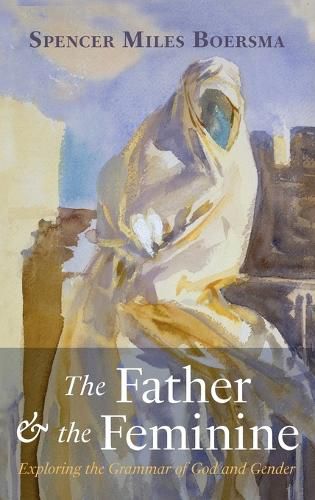Readings Newsletter
Become a Readings Member to make your shopping experience even easier.
Sign in or sign up for free!
You’re not far away from qualifying for FREE standard shipping within Australia
You’ve qualified for FREE standard shipping within Australia
The cart is loading…






This title is printed to order. This book may have been self-published. If so, we cannot guarantee the quality of the content. In the main most books will have gone through the editing process however some may not. We therefore suggest that you be aware of this before ordering this book. If in doubt check either the author or publisher’s details as we are unable to accept any returns unless they are faulty. Please contact us if you have any questions.
How should Christians speak of the transcendent yet personal God when our language for persons is almost always gendered? Is male imagery--such as Father, Son, or King--the only appropriate way? Are there ways to talk of God using female-gendered metaphors and pronouns? And how does the use of such language impact humans as gendered people? Moving beyond the extremes in this debate, The Father and the Feminine seeks to clarify the ways Christians speak about God: whether this is by recognizing revelation and Christian tradition; upholding God's ineffability; using analogies, metaphors, and narratives; referring to God as Father, Son, and Spirit; or by seeking a liberating way of life in community. Spencer Miles Boersma argues that male language for God need not be problematic if used and understood correctly but, at the same time, that it cannot be the exclusive way Christians speak of the Divine. The grammar of Christian Scripture and tradition both authorize the use of female language, which Christians ought to use in pursuing a deeper relationship with God and others, as well as a more authentic view of self.
$9.00 standard shipping within Australia
FREE standard shipping within Australia for orders over $100.00
Express & International shipping calculated at checkout
This title is printed to order. This book may have been self-published. If so, we cannot guarantee the quality of the content. In the main most books will have gone through the editing process however some may not. We therefore suggest that you be aware of this before ordering this book. If in doubt check either the author or publisher’s details as we are unable to accept any returns unless they are faulty. Please contact us if you have any questions.
How should Christians speak of the transcendent yet personal God when our language for persons is almost always gendered? Is male imagery--such as Father, Son, or King--the only appropriate way? Are there ways to talk of God using female-gendered metaphors and pronouns? And how does the use of such language impact humans as gendered people? Moving beyond the extremes in this debate, The Father and the Feminine seeks to clarify the ways Christians speak about God: whether this is by recognizing revelation and Christian tradition; upholding God's ineffability; using analogies, metaphors, and narratives; referring to God as Father, Son, and Spirit; or by seeking a liberating way of life in community. Spencer Miles Boersma argues that male language for God need not be problematic if used and understood correctly but, at the same time, that it cannot be the exclusive way Christians speak of the Divine. The grammar of Christian Scripture and tradition both authorize the use of female language, which Christians ought to use in pursuing a deeper relationship with God and others, as well as a more authentic view of self.